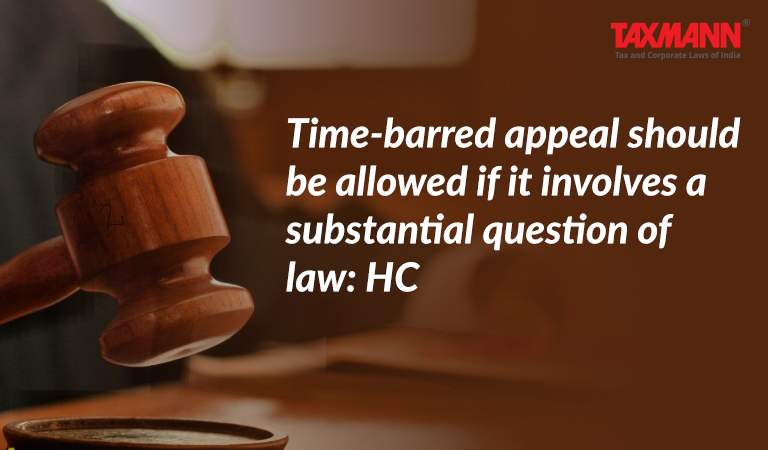Time-barred appeal should be allowed if it involves a substantial question of law: HC
- Blog|News|Income Tax|
- 2 Min Read
- By Taxmann
- |
- Last Updated on 5 December, 2022

Case Details: PCIT v. Soorajmul Nagarmull - [2022] 145 taxmann.com 245 (Calcutta)
Judiciary and Counsel Details
-
- T.S. Sivagnanam & Hiranmay Bhattacharyya, J.J.
- Vipul Kundalia, Senior Standing Counsel, Amit Sharma & Anurag Ray for the Appellant.
- Pratyush Jhunjhunwala, Dipankar Chowdhury & S. Bhattacharya, Advs. for the Respondent.
Facts of the Case
The assessee filed its return of income for the relevant assessment year. The Assessing Officer (AO) issued notices and asked the assessee to explain why the interest payable on the loan should not be treated as cessation of liability.
After considering the assessee’s reply, AO concluded that there was the cessation of trading liability and thus interest was deemed to be profit and gain of business or profession. The assessee filed an appeal against such an addition. CIT(A) granted relief to the assessee which was further affirmed by the Tribunal.
Aggrieved by the order of Tribunal, an appeal was filed by AO before the Calcutta High Court.
The appeal was filed after a delay of 627 days along with an application to condone the delay. The assessee filed an affidavit-in-opposition objecting to the prayer for condonation.
High Court Held
The Calcutta High Court held that the explanation offered by the AO for not preferring the appeal within the period of limitation wasn’t satisfactory. Thus, it is open for the court to dismiss the appeal as time-barred.
However, it will not be appropriate to reject an appeal based on a technical ground when the statute stipulates the requirements to consider the existence of a substantial question of law.
The High Court has to consider whether any substantial question of law arises for consideration if an appeal has been filed under Section 260A of the Income Tax, Act, 1961. Thus, the request for condonation of delay was to be allowed.
Disclaimer: The content/information published on the website is only for general information of the user and shall not be construed as legal advice. While the Taxmann has exercised reasonable efforts to ensure the veracity of information/content published, Taxmann shall be under no liability in any manner whatsoever for incorrect information, if any.

Taxmann Publications has a dedicated in-house Research & Editorial Team. This team consists of a team of Chartered Accountants, Company Secretaries, and Lawyers. This team works under the guidance and supervision of editor-in-chief Mr Rakesh Bhargava.
The Research and Editorial Team is responsible for developing reliable and accurate content for the readers. The team follows the six-sigma approach to achieve the benchmark of zero error in its publications and research platforms. The team ensures that the following publication guidelines are thoroughly followed while developing the content:
- The statutory material is obtained only from the authorized and reliable sources
- All the latest developments in the judicial and legislative fields are covered
- Prepare the analytical write-ups on current, controversial, and important issues to help the readers to understand the concept and its implications
- Every content published by Taxmann is complete, accurate and lucid
- All evidence-based statements are supported with proper reference to Section, Circular No., Notification No. or citations
- The golden rules of grammar, style and consistency are thoroughly followed
- Font and size that’s easy to read and remain consistent across all imprint and digital publications are applied



 CA | CS | CMA
CA | CS | CMA
